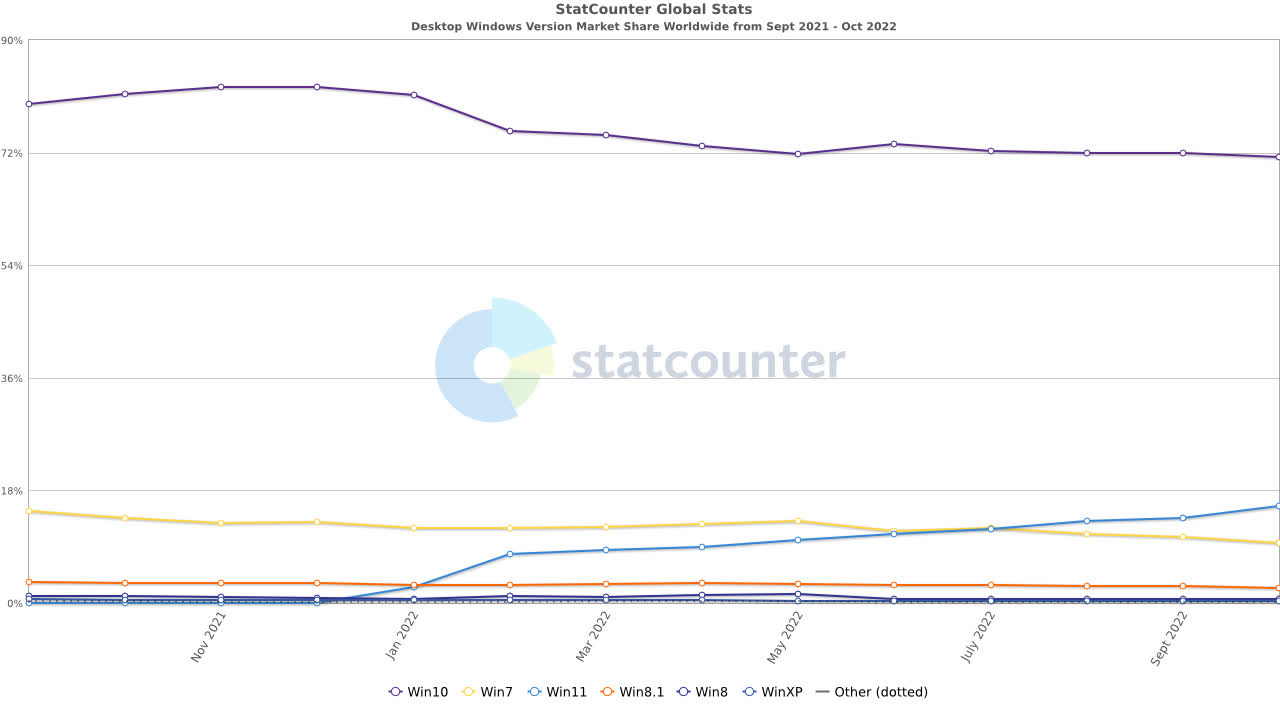The big picture: Over a year after its launch, Windows 11 is still nowhere near establishing dominance over Windows 10 among PC users. Various surveys show differing adoption rates for Windows 11, but all of them say most users haven't upgraded from 10.
The latest report from Statcounter shows that fewer than one in six desktop PCs worldwide use Windows 11. Windows 10 remains on almost three-quarters of PCs over a year after its successor launched.
Windows 11 reached 15.44-percent penetration in the October 2022 report, increasing slightly under two percent since September. Windows 10 use fell by less than one percent in the same timeframe. Windows 7, which Microsoft no longer supports, still runs on 9.62 percent of desktops, while Windows 8 and 8.1 combined hold a 3.14-percent market share. Only 0.39 percent of PCS have the two-decades-old Windows XP installed.
Windows stats from other recent surveys put Windows 10 in a similarly dominant position but vary more widely on Windows 11's adoption. The discrepancy is likely due to differing methodologies.
Click image to enlarge
The October 2022 Steam survey shows Windows 11 on just under a quarter of computers (including Mac and Linux systems). Not great, but more optimistic than Statcounter's report. Steam shows Windows 10 at 68.91-percent penetration to Statcounter's 71.29 percent.
Steam's methodology uses a survey of its 30 million concurrent users, although not all participated in the analysis. Statcounter based its reports on around five billion page views on 1.5 million websites.
AdDuplex, currently only has stats through June, but they paint a picture similar to Steam. Based on metrics from 5,000 Windows Store apps, the group's chart shows Windows 11 on 23.1 percent of PCs. Another AdDuplex chart shows Windows 11 adoption flattening far quicker than any Windows 10 version.
The most pessimistic Windows 11 numbers this fall so far come from Lansweeper. Out of 30 million workstations, the group reports that the new operating system is on just 2.61 percent --- still below Windows 7's 3.38 percent.
The leading cause of Windows 11's slow adoption is likely its high CPU requirement. Only systems with at least an Intel 8th gen or AMD Zen 2 processor can automatically upgrade to it, and Landsweper claims almost half of devices fail to meet that bar.

